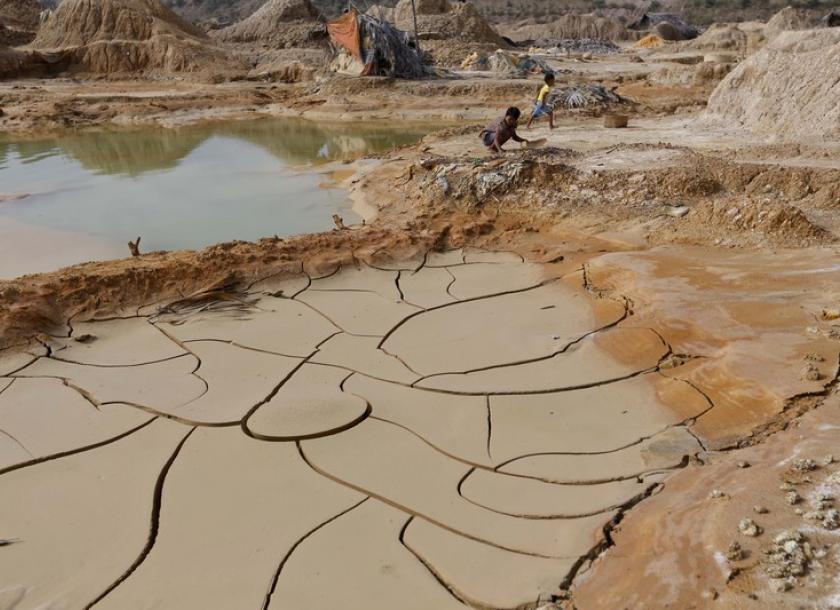Investors are still facing the challenge on the Myanmar Government over the Vacant, Fallow and Virgin (VFV) land law
18 มิถุนายน 2563
An existing policy requiring mineral exploration permit applicants to obtain land grants could deter investors and "kill off" foreign investments in mineral exploration in Myanmar.
Yangon’s business community is unclear about why the government is applying the Vacant, Fallow and Virgin (VFV) land law to exploration. One possibility is that the agriculture ministry wants to raise funds from making companies apply for VFV permits.
The agriculture ministry’s insistence that the VFV law applies to minerals exploration “threatens the very viability of the exploration sector and one that is already making the industry extremely unattractive to foreign investors,” the International Investors for Mineral Development Association said in a May 15 letter seen by The Myanmar Times.
The legal advice attached with the letter also said that the VFV law and rules do not have provisions relating to grants of land in respect to exploration, saying that this is appropriate because exclusive rights of occupation and use of land are not needed for exploration work.
Only the Union-level Hluttaw, Myanmar’s national legislature, has the authority to amend the scope and provisions of the VFV Law to extend its application to mineral exploration activities, the advice argues. Therefore the environment and agriculture ministries are “in breach of their administrative obligations and statutory duties”.
The association - which comprises foreign investors primarily in metal mining - argued that the government’s stance is “based on an incorrect understanding of that Law and will have a significant adverse effect on foreign investment in Myanmar’s mining sector."
Apart from further delays in permits, the security deposits and land fees stipulated by the VFV law “may very well make these investments in Myanmar untenable.”
The policy “has the strong potential to kill off any meaningful level of future foreign investment in mineral exploration,” it said.
The letter was sent to State Counsellor Daw Aung San Suu Kyi, and copied to Environment Minister U Ohn Win, Agriculture Minister U Aung Thu and Investment Minister U Thaung Tun.
It was signed by the chiefs of Wuntho Resources Co, Myanmar Precious Resources Group, Man Shwe Pyi Tha Tractors, Asia Pacific Mining, Valentis Services Co and Access Resources Asia Co, and by lawyer Mark Livingston, managing director of Livingstons Legal.
These objections are not new. The Yangon-based association first raised its concerns to the government in early 2019, soon after the policy was announced. The Myanmar Centre for Responsible Business had also warned in January 2019 that investors who seek to do business responsibly have specifically raised their concerns about the further complexity introduced by VFV law implementation.
The row over land use is the latest in a string of government policies that have made it increasingly difficult for foreign investors who want to operate responsibly in the country. Just last month, a major solar farm tender rolled out by the energy led to a chorus of objections from investors due to its extremely short application window. Critics noted that the one-month timeframe to apply would exacerbate the risks of land grabs, since bidders are required to submit land acquisition evidence as part of the bid. The tender has now been extended by just a month, to mid-July.
The VFV law was amended in September 2018 to require anyone living on land categorised as “vacant, fallow, and virgin” to apply for a permit to continue using it for the next 30 years. According to the government’s estimate, VFV land totals approximately 50 million acres, or one-third of Myanmar’s territory. It also makes up three-quarters of the seven ethnic states.
The move triggered a public outcry among civil society activists, farmer organisations and ethnic groups, who claimed the amendment risks criminalising millions of farmers and paves the way for land grabs by big business and the authorities. The government has also failed to align the changes with National Land Use Policy, pressing ahead with easy expropriation of untitled farmers without a definition of customary tenure.
As such, access to land remains one of the key challenges for investors in Myanmar because of the uncertainty around land ownership and unquantified liabilities due to land acquisition legacies.
The Myanmar Times has contacted the agriculture and environmental ministries for comment.
The Association in 2017 met Daw Suu and environment ministry officials to express their collective frustration over the time needed to obtain a permit for minerals exploration.
(The Myanmar Times: https://www.mmtimes.com/news/investors-challenge-myanmar-govt-over-vfv-land-law.html )











